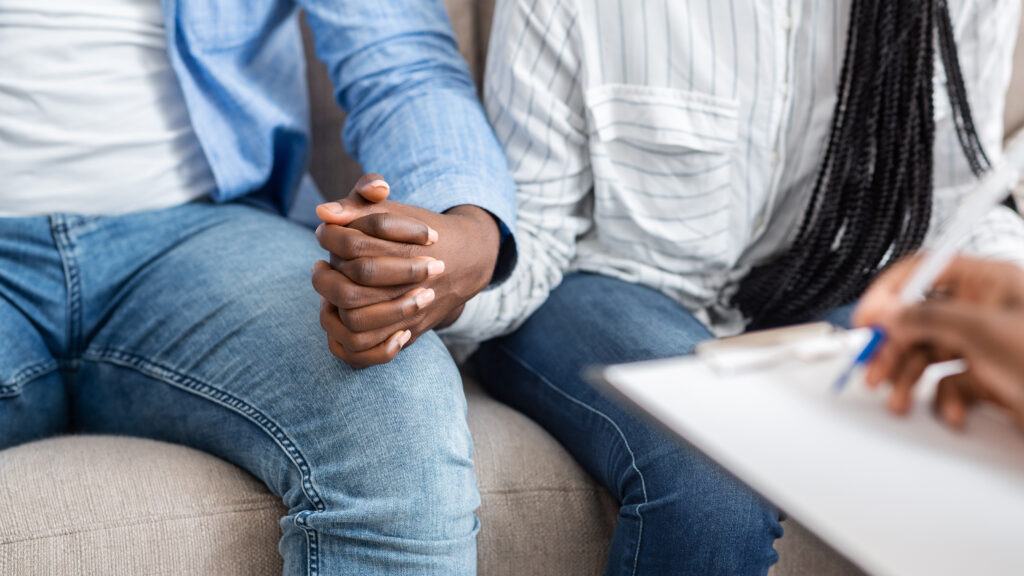Commentary
Biracial Therapist Believes Focus on Race Hurts Patients
Share:

“Hello, I’m looking for a black therapist. I saw your profile. I’m looking for a black guy, I need someone who can relate to me.”
Rodney Long Jr., MSSA, LISW-S, has lost track of how many times this voice message, or something similar, has been left on his work phone.
Rodney is a mental health therapist with a private practice in Ohio. He’s also biracial, and feels that is wholly irrelevant to the way he approaches his work.
“I grew up in poverty with parents in addiction,” Rodney explains. “I work with black doctors, lawyers, and teachers. A lot of times, our backgrounds don’t relate over anything except our skin color.”
In Ohio, the pressure to define and divide people based on race is coming from the top. The Counselor, Social Worker, and Marriage & Family Therapist Board — which oversees critical parts of the behavioral health field in Ohio — uses discriminatory practices to select who is eligible to join the Board. Specifically, it prioritizes race over levels of expertise.
“People are pushing for therapists to put more and more weight on identity and race, and less on individuality,” Rodney says. “We’re doing our clients, and the field, a disservice by doing so. Making assumptions about who people are should not be a core tenet of counseling. I don’t bring any of that stuff into the session.”
It wasn’t always this way. “When I started in 2013, the big worry was opiates. But in 2020, with Covid and George Floyd, there was a big push to get more black people into therapy,” he remembers. “Now there are entire practices opening up under the premise of being a black therapist that reinforce a belief that there is inherent trauma among black people that only other black people can understand.”
Rodney feels this is dangerous. He’s relieved nobody told him he was a “victim” when he was a young man because he may not have worked to overcome his difficult childhood and build the life he has today.
“The idea that you can tell me that I’m black, so I’m a victim, or I carry around something, is ridiculous to me,” Rodney says.
“If you told me when I was 10 years old that I was at a disadvantage, I would not be where I am today. And that’s what worries me. We’re telling kids, young children and young men, that they are at a disadvantage—and that if someone doesn’t look like they do, that person can’t help.”
Rodney knows from experience how powerful different perspectives can be. When he was a freshman in high school, his parents were in the depths of their addictions. Without the daily support and encouragement from a teacher and a guidance counselor at the school, Rodney might not have made it to graduation.
They also inspired Rodney to go into a helping profession. “These people were the reason I originally wanted to go into education,” he remembers. “I wanted to help someone else the way they helped me.”
Rodney had missed 100 days of school in the 8th grade and worked overtime to catch up in his academics. He made it to college, where he met a professor who became a mentor and convinced him to try social work. He cheered him on all the way to graduation and they are still close today.
“Everybody has somebody they can look to and rely on for guidance and support. The problem is that we start saying things like, ‘well, you’re not black, so you don’t understand.’ Or you didn’t grow up poor, so you don’t understand,” Rodney says. “Let me tell you, none of the people who helped me out the most were from where I was from. The most influential people in my life were people who were not like me.”
Nobody was telling Rodney that he couldn’t do it. They were only telling him that he could. Rodney’s mentors put him on the path toward the most rigorous education possible. And today, for so many students of medicine and mental health, that wouldn’t be the case.
Stories like Rodney’s are exactly why Do No Harm opened its doors.
America’s future practitioners get the best training—and patients get the best care—when we put education and grit over politics and ideology.


